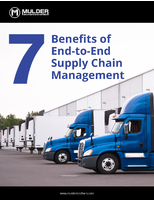Building the Next-Generation Workforce a Top Priority for Manufacturers Attending IQMS Pinnacle User Conference
Pinnacle keynote presentations from BridgeWorks generational experts and Oracle spotlighted key strategies for attracting millennials and integrating them with a company’s workforce
PASO ROBLES, Calif. – Building the next-generation workforce was a top priority for manufacturers attending the Pinnacle conference for customers of IQMS, a leading manufacturing ERP software and manufacturing execution system (MES) authority. The topic came up during conference sessions, in the halls, and at networking events throughout the show. At the center of the discussions were two keynote presentations by BridgeWorks generational experts and Oracle, which spotlighted key strategies for attracting millennials and integrating them with a company’s workforce.
IQMS’ Pinnacle user conference was held April 5-7, 2016 at Caesar’s Palace in Las Vegas. The at-capacity event brought together manufacturing executives, enterprise resource planning (ERP) technical experts, and industry thought leaders in 40 sessions examining manufacturing technology and business best practices, as well as how to get the most of IQMS software.
Managing Generations in the Manufacturing Workplace
“Managing Generations in the Manufacturing Workplace: Millennials, Xers and Boomers,” was the theme of keynote co-presenters Hannah Ubl and Scott Zimmer, writers, market researchers and generational experts with BridgeWorks. Ubl and Zimmer advised that manufacturing executives need to understand how to engage millennials because there will be 3.5 million manufacturing jobs to be filled over the next decade, and they noted that millennials will represent 50% of the North American workforce by 2020.
Ubl and Zimmer then compared the three generations typically comprising manufacturing teams today—baby boomers, Gen-Xers, and millennials—to provide better insight into what motivates each group.
* Baby boomers tend to be idealistic, optimistic, competitive with a very strong work ethic, as well as a focus on process and procedure, the speakers said.
* Gen-Xers tend to be independent (i.e. more inclined to do something themselves), entrepreneurial, skeptical, and analytical critics, Ubl and Zimmer noted.
* Millennials tend to be expectant of change, collaborative, tech-savvy, comfortable sharing feelings, comfortable with authority figures, and used to flexible schedules, the speakers explained.
Ubl and Zimmer also dived deeper into strategies for recruiting and retaining millennial employees. They suggested that manufacturers paint a positive, accurate picture, and tell a story that shows purpose and value. They also recommended giving tours of engineering, the business office, and the shop floor to differentiate current working conditions and opportunities and to dispel old stereotypes of dirty, smoky and dangerous factories.
To retain millennials, the speakers suggested that manufacturers connect them to the importance of their role—even at entry-level jobs—and the value of the work they are doing for the company, customers and society. Millennials will be engaged, they said, if manufacturers show them that the work they do matters.
Millennials: Adapting to Change
Some of the concepts introduced by Ubl and Zimmer were reinforced by Will Childs, director of cloud and SaaS business development and strategy at Oracle. In his keynote on, “Millennials – Curse or Cure,” Childs observed that millennials are known as the always-on generation and collaborators. He also noted that, as digital natives who are hyper-connected and have a fear of missing out (FOMO), millennials work differently than employees from other generations.
Childs has observed that millennials have changed Oracle. The company now provides support for a range of devices as well as access to social tools. Additionally, because millennials like to collaborate, Oracle has changed the physical working environment—from offices and cubicles to collaborative tables, Childs explained. He also said it is a faster-paced environment because millennials work at such a rapid rate.
At the same time, Childs noted that his company has been working to change millennial employees from being social to being professional. He said key behaviors being developed include being on time, having a work ethic, making an effort, using verbal and body language effectively, bringing a passion to what they do, and being willing to do extra, among others. Childs concluded that millennials are coachable but that manufacturers need to be prepared for the fact that it may take up to one-and-a-half years to get them trained.
About IQMS
IQMS uniquely combines ERP and manufacturing execution system (MES) functionality to give manufacturers a comprehensive end-to-end suite for running the business, backed by the real-time performance and scalability that companies demand. Developed specifically for mid-market repetitive, discrete and batch process manufacturers, IQMS provides robust capabilities for addressing strict customer and regulatory certification and compliance. IQMS achieves this by delivering traditional ERP functionality for accounting, sales orders, material requirements, inventory and purchasing, plus extended native features for CRM, human resources, production scheduling, shop floor control, warehouse and quality modules. With offices across North America, Europe and Asia, IQMS serves manufacturers around the world. For more information, please visit http://www.iqms.com.
Engage with IQMS at:
Website: IQMS.com
Twitter: @IQMSerp
LinkedIn: http://www.linkedin.com/company/IQMS
Facebook: https://www.facebook.com/IQMSerp
YouTube: https://www.youtube.com/IQMSerp
Google+: https://plus.google.com/+IQMSerp
Contacts: IQMS Steve Bieszczat, 805-227-1122
Chief Marketing Officer
sbieszczat@iqms.com Â



